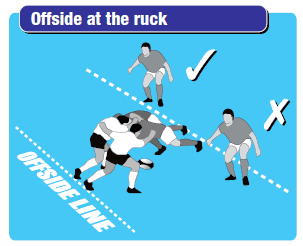
Rugby gloves provide protection for hands and warmth. They are made of synthetic materials (e.g spandex, polyester) and designed to protect the hands while keeping the ball in the hand. They can be fragile and easily break after only a few matches. So it is important to get them from a trusted supplier.
Gilbert, Optimum or Kooga are three of the top rugby brands. There are many sizes and styles available for these gloves. These gloves are generally made of synthetic materials like silicone and polyester. Some feature fleece lining to keep hands warm. Some players might choose to wear gloves without the lining. But, make sure your legal. Otherwise, you could be sent off the field for misconduct.
Rugby gloves are thermally insulated and have a brushed lining that traps air between the skin of the glove and the skin. The gloves are protected from water absorption by the brushed lining. It also allows for quicker drying. As with all equipment, you need to choose a glove which is durable, comfortable, and fits well.

Lack of grip is one of the main reasons rugby gloves aren't worn. If a player cannot catch a rugby ball, their hands may slip making it difficult to score. This can cause a player to lose the ball, or to pass forward to a teammate. Even if a Rugby player is successful in catching the ball, clumsiness may cause injury.
The downside to rugby gloves are their tendency to get soiled after a match. To get the best out of your gloves, wash them in warm water and mild soap. After you soak the gloves, be sure to turn the gloves inside out to dry them. You can wipe any remaining water off the gloves.
It is crucial to select the right size. The circumference of your hand determines how large the gloves should be. Selecting the wrong size can result in the gloves losing their shape or becoming too tight. You may also have problems with circulation, which could affect your performance.
When it is wet or muddy, the palm's gripping surface can become sticky and slimy. To avoid this, a rugby player should wear a pair of full thermal gloves. These gloves will keep you warm, but the fabric can slip and cause severe dislocations.

Some coaches urge their players to wear gloves. This can come in handy during colder months, such as winter games. Training mitts are also worn by many players to keep their hands warm.
However, it is important to note that many wheelchair rugby players still prefer to use the current gloves. They are better suited to their needs.
FAQ
Can kids participate in extreme sports?
It all depends on whether the question is about sports as a group or an individual activity. They should attempt all sports activities. However, this will vary depending on the kind of skiing they choose. Extreme sports like bungee jumping are enjoyed by some while others enjoy more gentler options such as downhill ski. It also depends on the amount of risk involved. Skydiving is not something that someone who enjoys bungee jumping would enjoy if they were afraid of heights.
Is football an extreme game?
It depends on who you ask. For thousands of years, millions of people have been playing football around the world. Many people argue that football is not a sport, but entertainment. Others say that it is as much a sport as any other. Some even believe it is the ultimate sport.
The truth is somewhere in the middle of these extremes.
Football is an extreme sport. But it's also a game that requires teamwork, strategy as well as skill and ability to manage speed, strength, stamina and power.
How is parasailing different than parachuting
Para-gliding is a form of flying above ground using a harness and a small sail. The harness allows you to fly. The harness keeps you safe if you fall through the air.
Flying requires no special equipment. You simply attach yourself to the sail. Then you go off. As you rise in altitude, the wind pulls against the sail. This allows it to lift you.
You continue moving forward as you glide along the ground. Your momentum carries you forward until you reach the end of the cable. You let go of the cable and you return to earth.
You can reattach the sail when you are ready to begin again.
Parasailing has been growing rapidly. 2013 saw parasailing reach more than 1,000,000. It's nearly twice as many people did it in 2013 than in 2008.
Why do people enjoy extreme sports?
Extreme sports are enjoyed by many people for many reasons.
They offer thrills.
Extreme sports are secondly exciting. They can sometimes be scary and unpredictable.
Third, they allow people to push their limits. You never know what may happen next.
Fourth, they let people get away from every day life.
Fifth, they allow people freedom to express their feelings through creative forms of art. Some extreme sports are artistic expressions, such as surf carving.
They help people stay fit. Many extreme sports are safe for your body. Skydiving, for example, can improve coordination, balance and strength.
Extreme sports can be fun. People enjoy being part of a group, especially when everyone is having a great time together.
What skills will I need to do extreme sports?
To become proficient in any extreme sport, you must practice every day.
Learning new moves and tricks is part of practicing. This will help you improve your performance.
Before trying to do anything new, you must be familiar with basic safety rules.
Protective gear, such as helmets, should be worn at all times. You must keep in the sight of others.
Stunts should not be performed without a spotter. A spotter watches over you during your stunt.
Who is interested in extreme sports and who doesn't?
Extreme sports is open to everyone who wishes to try something new. Both can be done, regardless of whether you are looking to learn more or to compete with others.
There are many kinds of activities available. Some involve jumping from a high cliff. Others involve riding a bicycle for long distances. Still, others involve skiing or snowboarding.
Some extreme sports require special skills. You must be trained to skydive before you jump from an airplane. Parachuting requires practice.
Young people love extreme sports. They are often enjoyed by those who want to get out and about in the great outdoors. They are also popular among athletes who train hard in order to improve their performance.
What makes a sport extreme?
Sports have been around since antiquity. They have evolved from being only athletic competitions to fully-fledged entertainments. Some sports have become part and parcel of our culture.
High levels of competition make some sports extreme. Professional basketball players often play each other for hours on end. Other sports are considered extreme because they require special equipment. Snowboarding is a sport that involves riding downhill on two wheels attached at the bottom.
Others sports are considered extreme due to their different rules. For example, American football is played differently in soccer.
Extreme sports require that their participants perform extraordinary feats of athleticism. Gymnastics is one example of extreme sports. The athletes must balance on various objects to avoid falling.
Statistics
- Overall participation has grown by more than 60% since 1998 - from 5.9 million in 1998 to 9.6 million in 2004 Artificial Wall Climbing. (momsteam.com)
- Nearly 98% of all "frequent" roller hockey participants (those who play 25+ days/year) are male. (momsteam.com)
- Approximately 50% of all wakeboarders have been participating in the sport for 1-3 years. (momsteam.com)
- Since 1998, overall participation has grown nearly 25% - from 5.2 million in 1998 to 6.5 million in 2004. (momsteam.com)
- According to the United States Parachuting Association, about 21 people die yearly from skydiving. (livehealthy.chron.com)
External Links
How To
How can you learn parkour skills
Parkour is an open-ended running style that involves people running through obstacles like trees, walls, fences, fences, and buildings. It is one of the most well-known sports, with millions of participants all over the globe. Parkour can be done in many ways, including freestyle, wall climbing and obstacle courses, urban exploration, rescue, freerunning and urban combat.
Any activity that increases your health and physical fitness can be called fitness. It could mean going to the gym or walking. Parkour is considered a sport since it requires athletes to use their body strength, speed, balance, coordination, and agility.
Here are some tips for parkour beginners:
-
Do not choose a location with stairs or any other places that could be dangerous. Flat ground is the best option. Avoid hills.
-
Shoes made from leather, rubber, or leather should be worn. If you don't know what type of shoe works best for you, try them all and see which ones feel good. The right shoes can make a parkour session or not.
-
Take water bottles with you and snacks for practice sessions.
-
Before you begin a parkour lesson, it is important to warm up. This means warming up your muscles before you jump into the action. Begin slow, then increase the intensity to ensure that your muscles are well-prepared.
-
Do not rely too much on your arms and legs when jumping. Instead, use your core and back muscles more to overcome obstacles.
-
Do not overdo it. Take breaks whenever you need to. This allows you to recover from the workout without getting injured.
-
When you practice parkour, it is important to listen to music. Music helps you relax, concentrate better, and makes it easier to focus.
-
Stretch your muscles to prevent any injuries after each session.
-
When you are exercising in public, make sure to keep your hands clean. This will help you avoid causing harm to others.
-
Keep track of your progress by noting down your performance in a journal. This will help you remember your strengths, and your weaknesses.
-
Parkour is fun! Don't let fear of losing your balance stop you from enjoying the parkour experience. Take a step back if you do fall.
-
Everyday, you learn new tricks and techniques.
-
You should eat healthy foods. Protein-rich foods will increase muscle mass.
-
Find a mentor. Mentors can teach you certain moves and offer advice on how to improve your skills.
-
Don't be afraid to ask questions. It's a joy to help fellow enthusiasts learn new things. Ask!
-
Practice makes perfect. Train whenever you can.
-
Have fun!
-
Last but not least, be safe